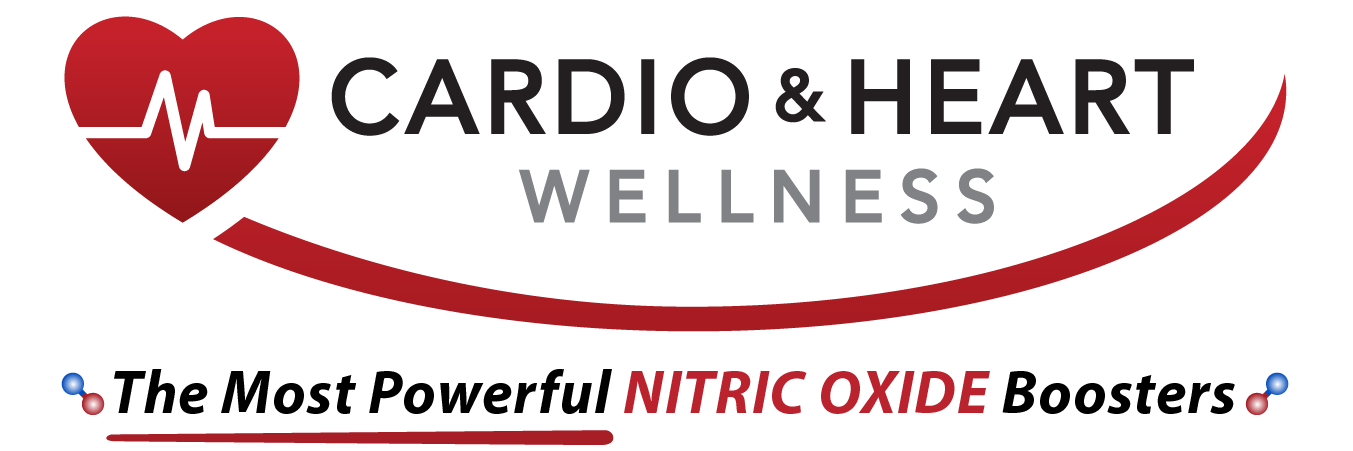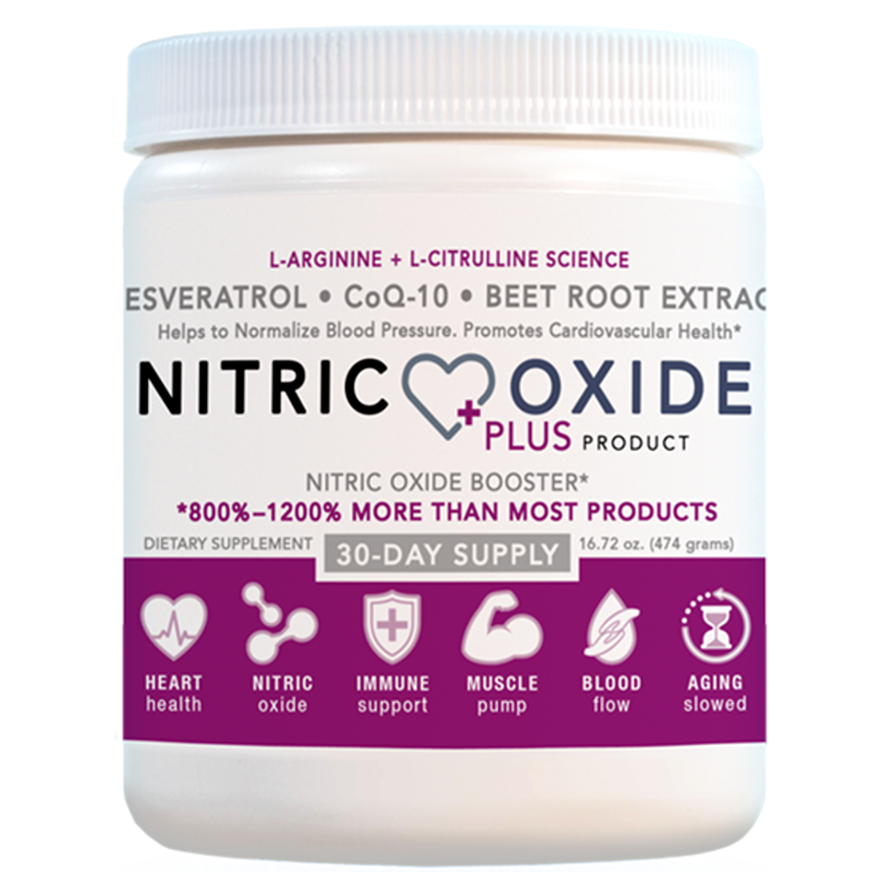
Nitric Oxide Plus
800% to 1200% more Nitric Oxide than 99% of all products
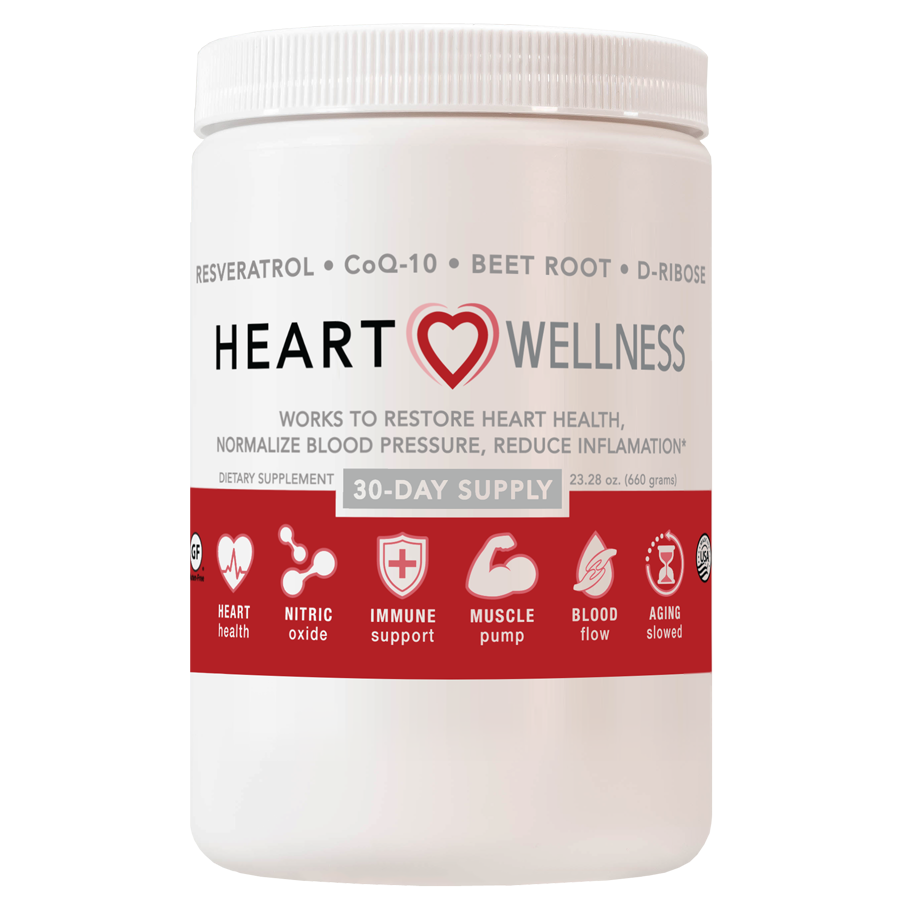
Heart Wellness
Nitric Oxide producer, repairs heart muscle. cleans vessels.
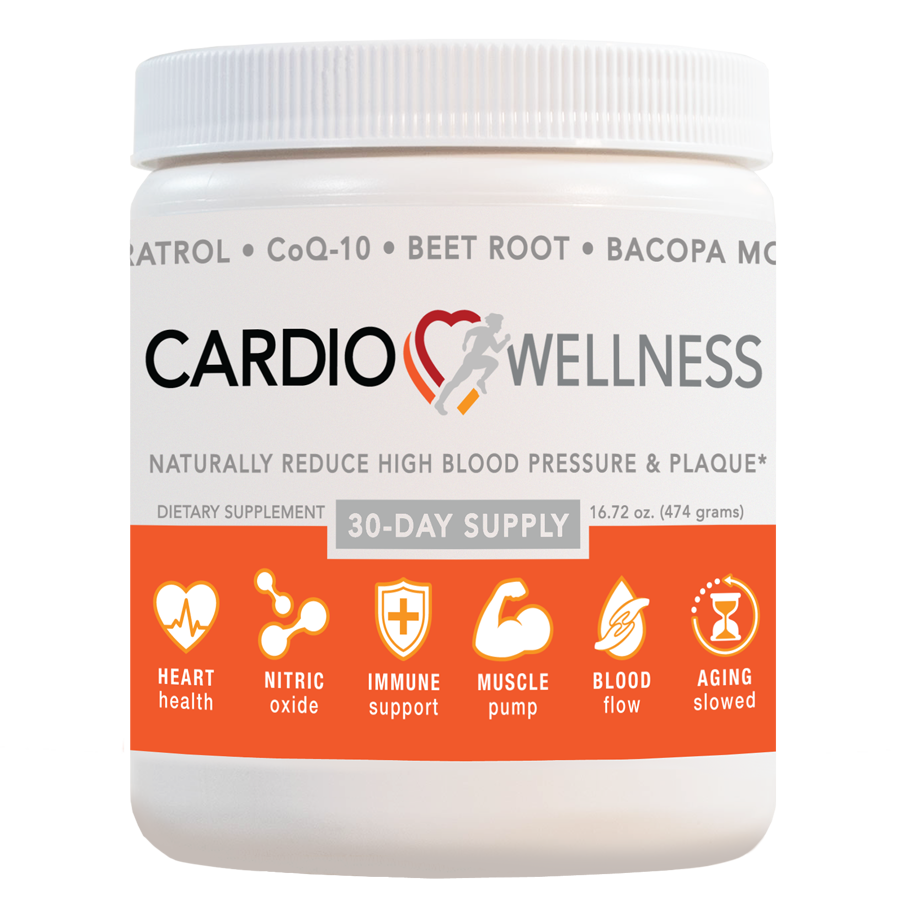
Cardio Wellness
Reduces blood pressure, cleans vessels, Nitric Oxide producer, addresses dementia.

89 Research Verified, Benefits of L-Arginine
Prevent, halt and reverse cardiovascular disease, anti-age the body and
stop free radical damage to the body and vessels.
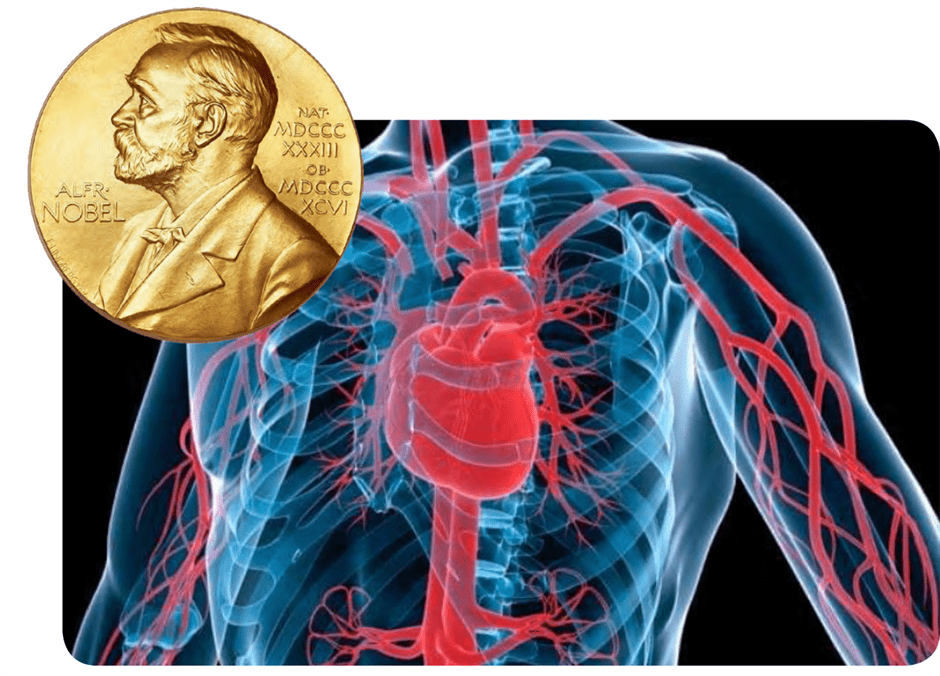
DISCOVERY: Nitric Oxide (NO) is
created systemically by an organ in the
body from L-Arginine, which is made
from protein rich foods.
This scientific discovery received the 1998 Nobel Prize in Medicine due to the fact that NO is recognized as an extremely important contributor to good health and longevity.
As we age, our Nitric Oxide producing system breaks down and we produce less and less Nitric Oxide (NO). This breakdown is a risk to our health and well-being.

Nitric Oxide Plus, Cardio Wellness, and Heart Wellness are scientifically
formulated, all natural supplements, made from L-Arginine and other
nutraceuticals. These formulas are designed to naturally increase Nitric
Oxide production in the blood and are based on the scientific research
shown here as well as the more than 29 years of further study and
analysis by Dr. Rainer Boger, MD. (Researcher, Scientist, Professor of
Medicine)
We’ve created 3 unique, potent and all natural formulas to improve cardiovascular health as well as many other health needs.
The therapeutic benefits of L-Arginine producing Nitric Oxide have been
validated by thousands of scientific studies. Let’s take a look at them here…
(The following report, which is backed up by incredible scientific research, shows the many health benefits of L-Arginine in
the human body. Herewith, are 89 different arginine health benefits from thousands of studies over many years along with
their scientific references).
L-Arginine is a semi-essential amino acid produced in the liver and found in protein rich foods like
fish and red meat. Medical research performed by Dr. Rainer Boger, MD, a 29-year cardiovascular
disease researcher, has established that taking 2 doses of 6,000 mgs of Arginine/Citrulline each day
about 12 hours apart, produces at least 4 times, and as much as 8 times more Nitric Oxide than any
other product on the market.
Dr. Boger has derived many scientific discussions from these studies and from his own research. He
has published over 100 peer reviewed scientific studies on Arginine and Cardiovascular Disease. He
is the #1 researcher in the world on this subject. Go to www.cardioandheartwellness.com to learn
more.
Here are the 89, Research Verified, Benefits of L-Arginine
Aging Process
1)
L-Arginine inhibits one of the primary mechanisms of the aging process (it inhibits the process of
cross-linking). 2)
L-Arginine increases the release of the human growth hormone (HGH) (also known
as the anti-aging hormone) from the pituitary gland.
Cardiovascular System
3) L-Arginine improves blood circulation, improves exercise capacity and facilitates vasodilation in
angina patients. 4)
L-Arginine helps to prevent atherosclerosis and reduces the severity of existing
atherosclerosis. 5)
L-Arginine inhibits the adhesion of monocytes to the endothelium (an underlying
event in the course of atherosclerosis). 6)
L-Arginine improves blood circulation (by stimulating the
production of nitric oxide, an endogenous neurotransmitter that helps to prevent vasoconstriction and
which initiates vasodilation by relaxing the smooth muscle cells of the blood vessels). 7)
L-Arginine
helps to prevent abnormal blood clotting (by stimulating the production of plasmin and by increasing
vasodilation). 8)
L-Arginine helps to prevent free radical induced damage to the lining of blood
vessels (by enhancing the production of nitric oxide in blood vessels). 9)
L-Arginine significantly increases stroke volume and cardiac output (without effect on heartbeat rate) in congestive heart
failure patients. It also increases vasodilation (leading to increased blood circulation) in congestive
heart failure patients. 10)
L-Arginine reverses consequences of coronary heart disease. 11)
L-Arginine lowers blood pressure in some hypertension patients (by facilitating the body’s production
of nitric oxide (NO) and by inhibiting the angiotensin converting enzyme (ACE). 12)
L-Arginine
reverses adverse effects of high blood pressure. 13)
L-Arginine decreases high blood pressure.
14)
L-Arginine reduces pulmonary blood pressure and improves blood circulation in pulmonary
hypertension patients. 15)
L-Arginine increases walking distance in intermittent claudication patients.
16)
L-Arginine restores normal endothelial function in hypercholesterolemia. 17)
L-Arginine improves
walking distance in peripheral vascular disease. 18)
L-Arginine improves outcome after bypass
surgery. 19)
L-Arginine reduces blood clots and strokes. 20)
L-Arginine helps prevent restenosis after
angioplasty and bypass. 21)
L-Arginine may give protection against damaging effects of heart attack.
22)
L-Arginine improves endothelial dysfunction in chronic heart failure patients. 23)
L-Arginine
improves peripheral vascular disease.
Digestive System
24) L-Arginine deficiency can cause constipation.
L-Arginine supplementation may decrease the incidence of gallstones.
L-Arginine reduces intestinal permeability (due to L-Arginine’s role in the
production of nitric oxide). 25)
L-Arginine alleviates many cases of ulcerative colitis (by promoting the healing of the ulcers that occur in the colon of ulcerative colitis patients). 26)
L-Arginine may
improve irritable bowel syndrome (IBS). 27)
L-Arginine reduces ulcers. 28)
L-Arginine helps prevent post surgical damage after intestinal manipulation. 29)
L-Arginine improves the outcome in sepsis
patients.
Excretory System
2) L-Arginine helps to prevent bacterial & viral diseases in persons with suppressed immune
systems. 33) L-Arginine blocks the formation of some forms of cancer (L-Arginine inhibits the cellular
replication of 24 different types of cancer in animals). 34)
L-Arginine boosts the ability of the immune
system to fight breast cancer. 35)
L-Arginine lowers tumor protein synthesis and tumor growth rate in
liver cancer. 36)
L-Arginine inhibits the further growth of some types of sarcomas. One of the means by which L-Arginine counteracts cancer is by reducing the activity of ornithine decarboxylase, an
enzyme that is associated with some types of cancer. *CAUTION: L-Arginine is also speculated to exacerbate some types of cancer, however this is just a theory.
37) L-Arginine improves the outcome of cancer treatment. 38)
L-Arginine (in non-excessive quantities) stimulates numerous aspects of the immune system. 39)
L-Arginine stimulates the production of helper T-cells. 40)
L-Arginine stimulates activity and production of lymphocytes by the thymus gland. 41)
L-Arginine increases the activity
(cytotoxicity) of NK lymphocytes. 42)
L-Arginine stimulates the production of T-lymphocytes within the
thymus and makes them more active and effective. 43)
L-Arginine increases the size of the thymus, stimulates the production of lymphocytes by the thymus and restores the production of thymic hormones to youthful levels. 44)
L-Arginine helps to counteract inflammation. 45)
L-Arginine accelerates the ability of the immune system to recover from surgery. 46)
L-Arginine
improves sickle cell disease.
Metabolism
47) Alkalosis can occur as a result of L-Arginine deficiency. 48)
L-Arginine exerts antioxidant effects
that scavenge superoxide free radicals. 49)
L-Arginine lowers total serum cholesterol levels. 50) L-Arginine lowers serum low-density lipoprotein (LDL) levels. 51)
L-Arginine inhibits the process of cross-linking. 52)
L-Arginine reduces insulin resistance and improves blood sugar disposal in diabetes type 2 patients. 53)
L-Arginine reduces insulin resistance. 54)
L-Arginine improves diabetes and reverses damage caused by diabetes. 55)
L-Arginine may prevent diabetes. 56)
L-Arginine
increases oxygen uptake in the lungs in persons with hypoxia (due to its role in the production of nitric oxide, which improves blood circulation via vasodilation). 57)
L-Arginine increases oxygen uptake in the lungs in persons with altitude sickness (due to its role in the production of nitric oxide, which in turn improves blood circulation via vasodilation). 58)
L-Arginine improves asthma. 59)
L-Arginine
helps to detoxify the liver and alleviates cirrhosis. Liver malfunction can occur as a result of L-Arginine deficiency. 60)
L-Arginine lowers elevated serum triglyceride levels. 61)
L-Arginine alleviates obesity
and facilitates weight loss (by stimulating the release of human growth hormone (HGH) from the pituitary gland).
Musculoskeletal System
62) L-Arginine facilitates the healing of fractures. 63)
L-Arginine facilitates muscle growth (by
inhibiting muscle loss) and is required for the transport of the nitrogen used in muscle metabolism.
64)
Muscle weakness can occur as a result of L-Arginine deficiency. 65)
L-Arginine may prevent
and alleviate osteoporosis (by stimulating the release of human growth hormone (HGH) which is an important mediator of bone formation and bone turnover; it also stimulates nitric oxide synthesis
which is a potent inhibitor of the osteoclasts that cause the resorption of bone). 66)
As a precursor for nitric oxide production, l-L-Arginine causes the relaxation of smooth muscle. 67)
L-Arginine improves muscle performance. 68)
L-Arginine improves glucose uptake into muscle cells.
Nervous System
69) L-Arginine may be useful for the treatment of Alzheimer’s disease (due to its ability to repair damaged axons by increasing polyamines levels). 70)
L-Arginine is essential for the regeneration of damaged axons of neurons (its role appears to be as an agent for degrading proteins that have been damaged through axon injury). 71)
L-Arginine facilitates the potentiation of long-term memory (by
stimulating the production of nitric oxide (NO) – a neurotransmitter responsible for the potentiation (storage) of long-term memory.
72) L-Arginine improves memory and cognitive functions. 73) L-Arginine improves pituitary responsiveness and modulates hormonal control.
72) L-Arginine improves memory and cognitive functions. 73) L-Arginine improves pituitary responsiveness and modulates hormonal control.
Sexual System
74) L-Arginine alleviates male impotence (by stimulating the production of nitric oxide, the
endogenous chemical that stimulates erections in males). 75)
L-Arginine is used to effectively treat erectile dysfunction by increasing nitric oxide production in the corpus cavernosum, the spongy tissue of the penis.
L-Arginine alleviates male infertility by improving sperm count and sperm motility (due to its involvement in the manufacture of endogenous spermidine). 76)
L-Arginine enhances libido (male and female). 77)
L-Arginine enhances (female) sexual performance – due to its role in the production of nitric oxide in the clitoris (nitric oxide facilitates female orgasm in the clitoris). 78)
L-Arginine improves (male) sexual performance by providing nitrogen to the nitric oxide (NO) molecule that is integral to the achievement of erections – L-Arginine produces
erections that are bigger, harder and
more frequent. It also increases male sexual endurance, i.e. erections that last for a longer period of
time. 79)
L-Arginine improves sperm count and sperm motility. 80)
L-Arginine may improve prostate function.
L-Arginine deficiency can cause atrophy of the testicles of the testes.
Skin/Hair
81) Hair loss (especially male pattern baldness) can occur as a result of L-Arginine deficiency. 82)
L-Arginine concentrates in the skin.
L-Arginine (applied topically) increases the level of vascular
endothelial growth factor in the skin. 83)
L-Arginine stimulates the proliferation of fibroblasts (skin cells). 84)
L-Arginine is essential for and accelerates the healing of wounds (by stimulating the
release of human growth hormone (HGH), stimulating the production of collagen and by stimulating the proliferation of fibroblasts). 85)
L-Arginine accelerates the healing of burns. 86)
L-Arginine dramatically accelerates the healing of wounds in people who have undergone surgery. 87)
L-Arginine decreases post-operative infection and length of hospital stay. 88)
L-Arginine improves
scleroderma.
Safety
89) L-Arginine has been shown to be safe in the above studies as well as thousands of others. L-Arginine has been used safely in humans for the past 30 years.
